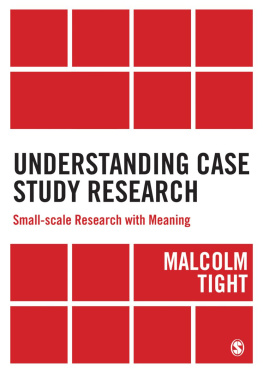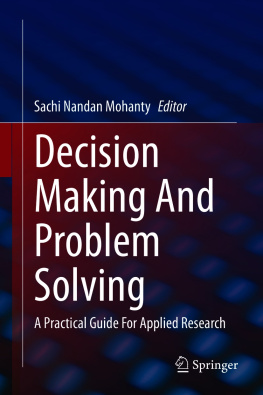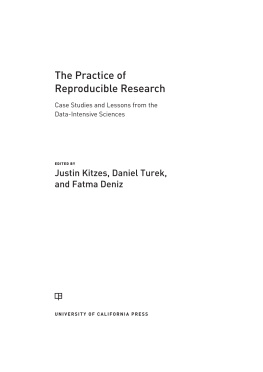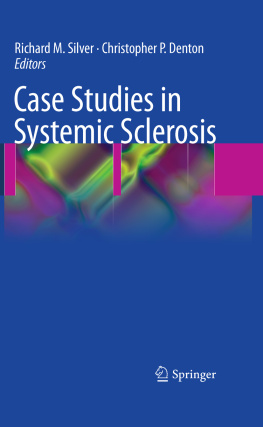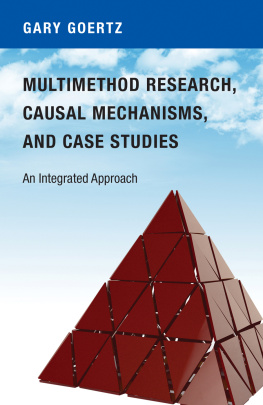Making Our Research Useful
Making Our Research Useful
Case Studies in the Utilization of Anthropological Knowledge
Edited by
John van Willigen ,
Barbara Rylko-Bauer ,
and Ann McElroy
First published 1989 by Westview Press, Inc.
Published 2018 by Routledge
52 Vanderbilt Avenue, New York, NY 10017
2 Park Square, Milton Park, Abingdon, Oxon OX14 4RN
Routledge is an imprint of the Taylor & Francis Group, an informa business
Copyright 1989 Taylor & Francis
All rights reserved. No part of this book may be reprinted or reproduced or utilised in any form or by any electronic, mechanical, or other means, now known or hereafter invented, including photocopying and recording, or in any information storage or retrieval system, without permission in writing from the publishers.
Notice:
Product or corporate names may be trademarks or registered trademarks, and are used only for identification and explanation without intent to infringe.
Library of Congress Cataloging-in-Publication Data
Making our research useful.
(Westview special studies in applied anthropology)
Bibliography: p.
Includes index.
1. Applied anthropologyCase studies. I. Van
Willigen. John. II. Rylko-Bauer, Barbara. III. McElroy,
Ann. IV. Series.
GN397.5.M35 1989 306 88-27804
ISBN 13: 978-0-367-01807-8 (hbk)
Contents
Barbara Rylko-Bauer, John van Willigen, and Ann McElroy
John J.Wood
Marilyn L. Poland and Paul T. Giblin
Linda Girdner
M.Jean Gilbert
Margaret S. Boone
Judith Greenwood
Jeannine Coreil
Dennis M.Warren
Kathleen M. DeWalt and Billie R. DeWalt
Daniel R. Scheinfeld, Patricia A. Marshall, and David W. Beer
Madelyn Anne Iris
H. Max Drake
W. K. Barger and Ernesto Reza
Carl Kendall
Lucy M. Cohen
- Figures
- 1 Summary of the Knowledge Utilization Strategies Presented in the Case Studies
- Tables
The editors wish to thank a number of individuals who assisted this project Richard W. Stoffle of the Institute of Social Research (ISR) of the University of Michigan provided useful advice and support. Donald C. Pelz of the ISR provided guidance concerning the work of the Center for Research on the Utilization of Scientific Knowledge at ISR. Jean J. Schensul, Robert Wulff, Shirley Fiske, and William Partridge provided pre-publication copies of materials useful in preparing the first chapter, Melanie Sovine and Ruth Landman provided valuable comments on an early version of the first chapter that was presented at the 1986 annual meeting of the American Anthropological Association.
The staff of the University of Kentucky Computing Center provided facilities and advice in the initial production process. Teresa Epperson and Helen Crawford contributed to production by typing manuscript. Charlotte Zerof of the Department of Behavioral Science of the University of Kentucky Medical Center assisted in conversion of computer files.
The services and support of staff of the Department of Anthropology of SUNY Buffalo were also essential in this project. Special thanks go to Ezra Zubrow and to Warren Barbour for advice and guidance in use of computers during initial stages of the project. The Faculty of Social Sciences Microcomputing Lab of the State University of New York at Buffalo provided facilities for the major and final portion of production. We wish especially to acknowledge and thank Joseph E. Pittari, systems analyst for the FSS Microcomputing Lab, for his excellent services in compositional design and production. Without Joe Pittari's patience, persistence, and extraordinary knowledge of computers, this project could not have been completed.
The editors and staff at Westview Press have been most responsive and supportive throughout the production process. We owe a special note of thanks to Kellie Masterson, Editor, whose enthusiasm and keen understanding of anthropology have made our association most pleasant and productive.
We also wish to thank our families for their patience, support, and interest in this project: Jacqueline, Anne, and Juliana van Willigen; Daniel and John Michael Bauer and Jadwiga Rylko; and Roger, Andrew, and Catherine Glasgow.
Last, and certainly most important, are the authors, who were prompt, receptive to suggestions for changes, and enthusiastic about this project. The editors developed great respect for their work, skill, and commitment to making their research useful.
John van Willigen
Barbara Rylko-Bauer
Ann McElroy
The underutilization of social science research in public policy is a frequently noted problem (Lynn 1978; Weiss 1977), and one that has also been recognized in anthropology (Weaver 1985a). Given the expertise of anthropologists in studying and explaining community organization and human dynamics, it is a paradox that our research findings and recommendations have relatively little impact on public and international policy. The increasing involvement of anthropologists in various aspects of the policy process points to the importance of looking at this issue of knowledge utilization in a systematic manner. We need to understand the means by which knowledge is converted into action.
This set of case studies addresses the question of how to improve the use of applied or policy research done by anthropologists. However, these studies, which depict concrete methods for getting research used, should also have cross-disciplinary relevance, since the issue of knowledge utilization crosscuts all social science disciplines.
This book is an activity of the Applied Anthropology Documentation Project at the University of Kentucky. Sponsored by the Society for Applied Anthropology, The Washington Association of Professional Anthropologists, and the Society for Applied Anthropology in Canada/Societe d'Anthropologie Applique du Canada, the Project is organized to document the applications of anthropology and in so doing, to improve practice. This has resulted in the establishment of an archive collection of technical reports and other limited distribution materials produced by applied and practicing anthropologists in the course of their work.
The contributing authors were asked to write case studies based on their recent work which had knowledge utilization as a goal. To ensure some degree of comparability, as well as uniformity in form and focus, the authors were given an outline that served as a flexible guide in writing the case studies. The elements of this outline are described below.
Introduction
This provides an overview of the case study and may include a discussion of the historical context and development of the issue on which the study was focused.
Research Methods and Context
This section provides enough information about the research process so that the reader can understand what actually went on during the project. This includes information about data collection techniques, sampling or informant selection, and the theoretical orientation of the research. Most cases also discuss beneficiaries (those who were to benefit from the research), as well as the client group, which might include policy and decision makers, program managers, a community group or other "consumers" of research. The fact that there may be more than one client was often clearly drawn.


